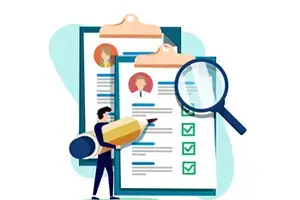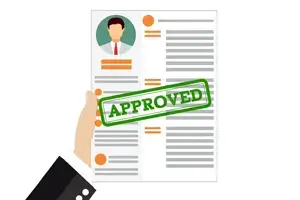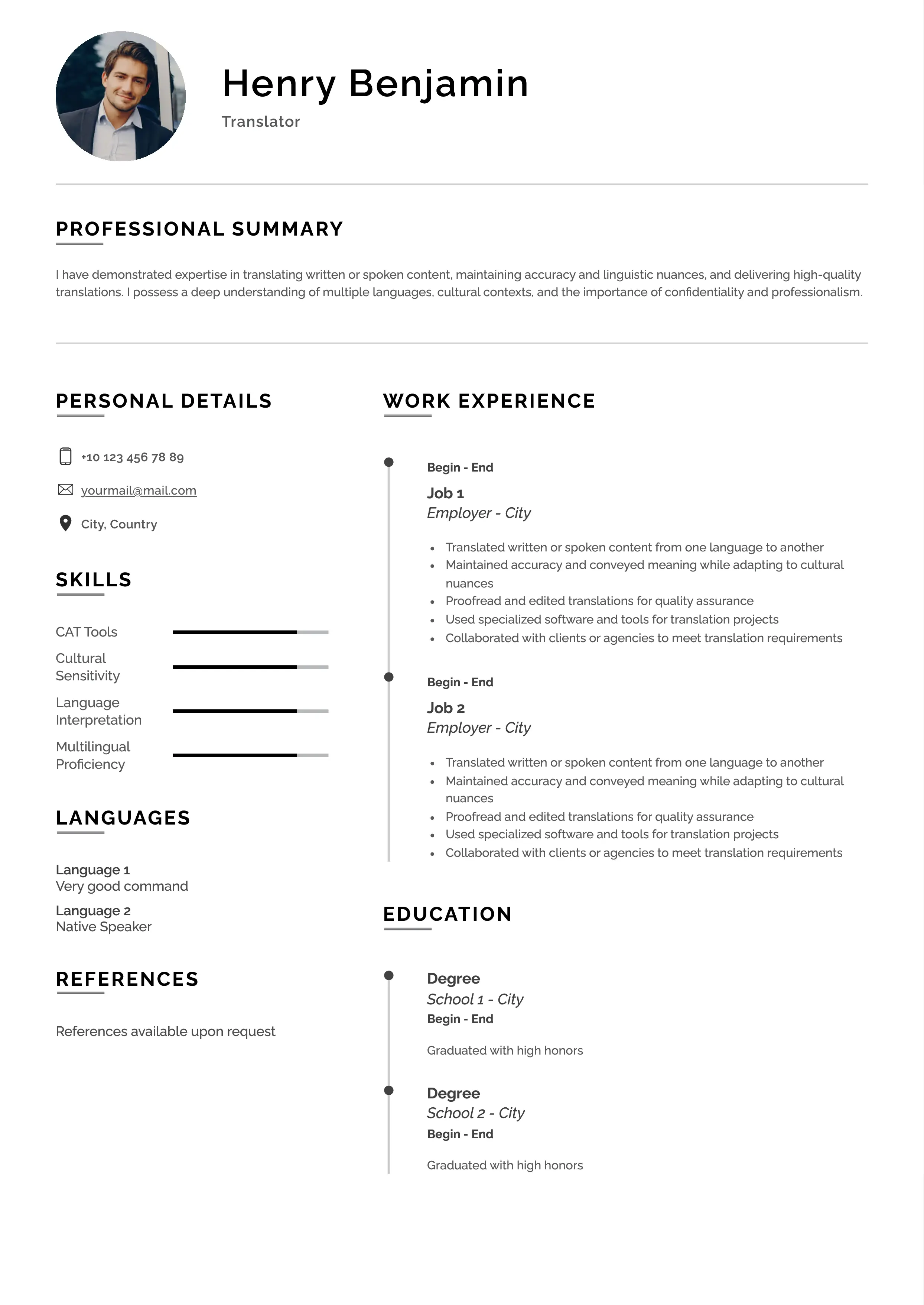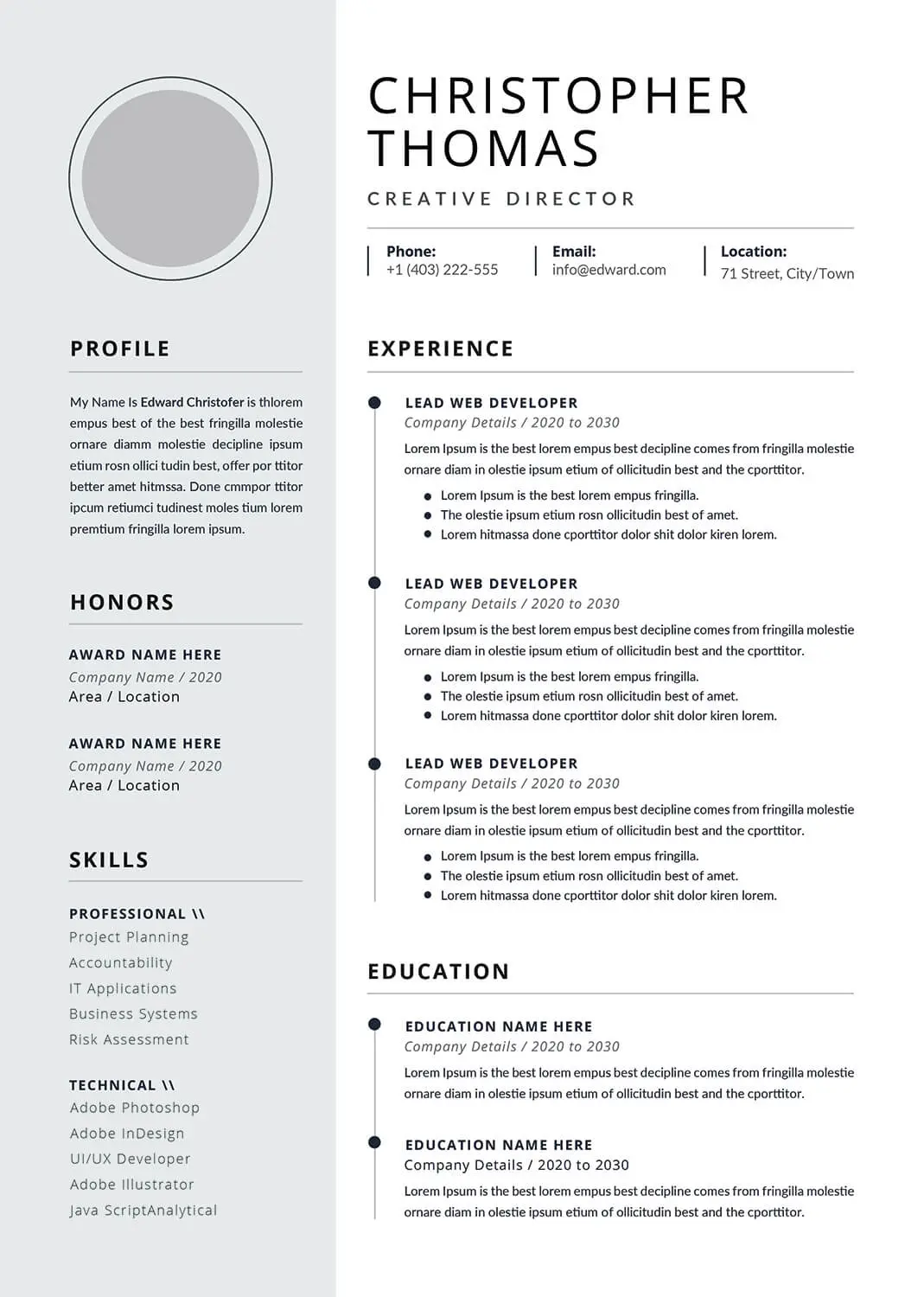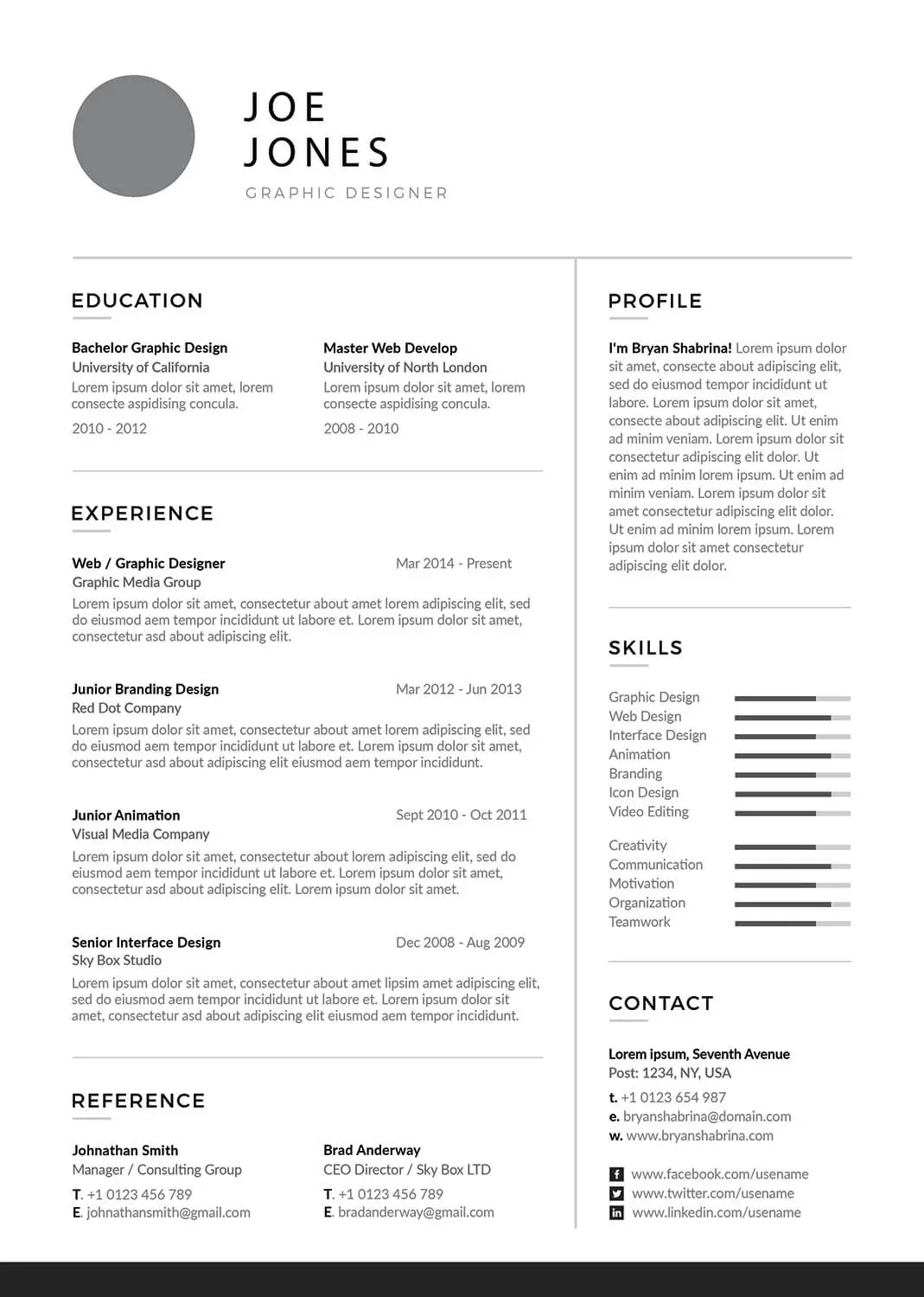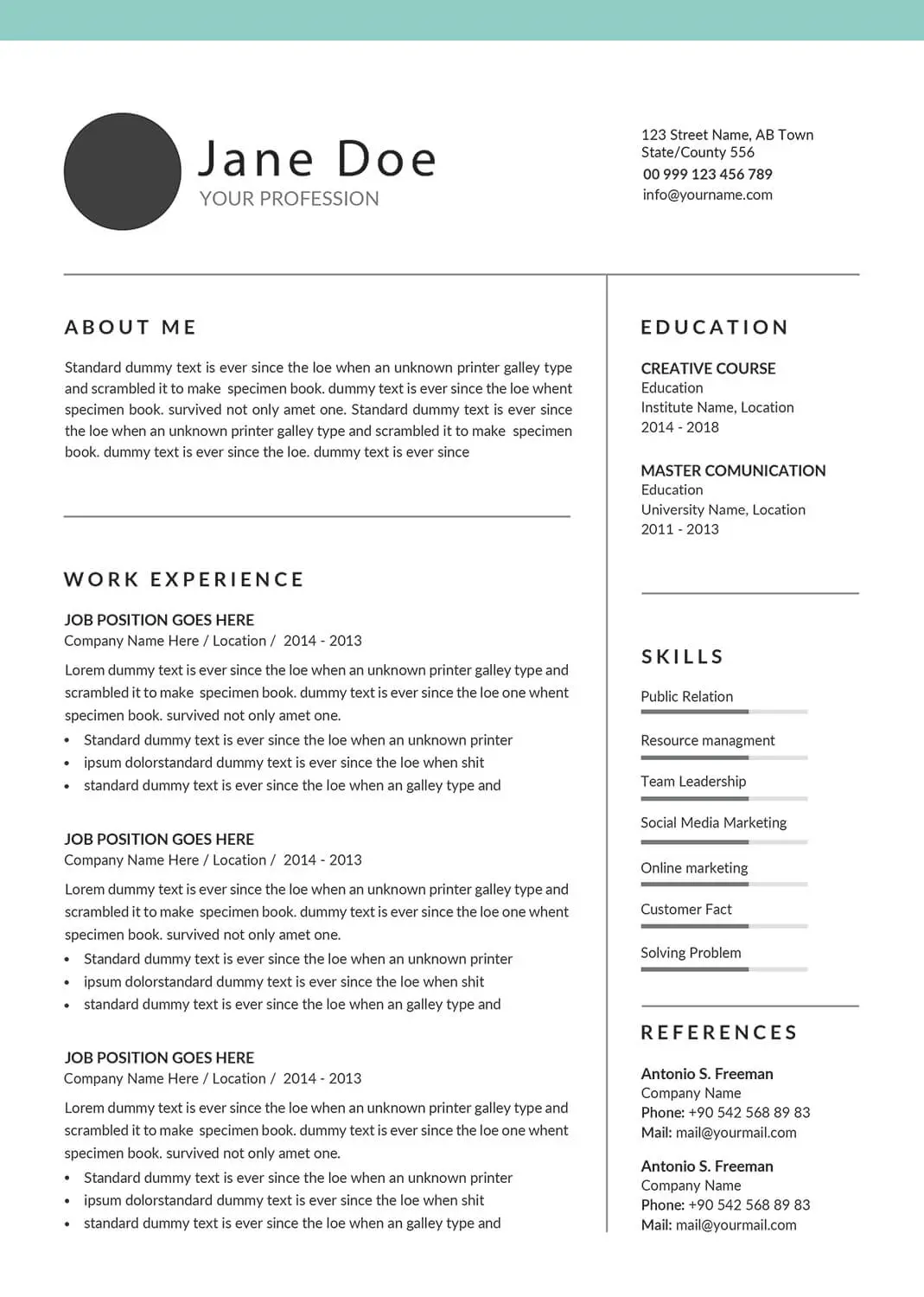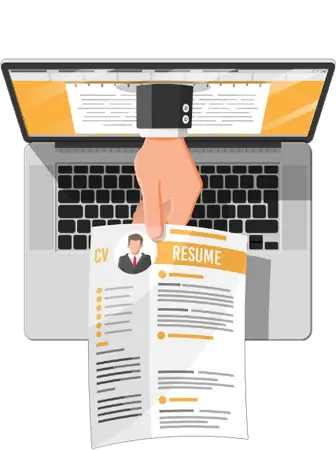Translator Resume
Skip the hassle of starting from scratch! We have reviewed all the successful resumes for Translator to date and have crafted an excellent resume for you. Below you'll find a meticulously prepared resume for Translator, featuring a professional summary and a detailed work experience. Just click on the template we prepared below and make the necessary edits on our resume builder and voilà – your polished resume is ready for download.
Professional Summary for Translator Resume
As a skilled and versatile Translator, I have been dedicated to bridging linguistic and cultural barriers, facilitating effective communication, and enabling the exchange of information across different languages. Throughout my career, I have demonstrated expertise in translating written or spoken content, maintaining accuracy and linguistic nuances, and delivering high-quality translations. I possess a deep understanding of multiple languages, cultural contexts, and the importance of confidentiality and professionalism. I excel in adapting my language skills to different subject matters and communication styles, ensuring that the intended meaning and tone are preserved in the translation.
Work Experience for Translator Resume
- Translated written or spoken content from one language to another
- Maintained accuracy and conveyed meaning while adapting to cultural nuances
- Proofread and edited translations for quality assurance
- Used specialized software and tools for translation projects
- Collaborated with clients or agencies to meet translation requirements.
Translator Resume Templates
A translator resume template
helps hasten the preparation of your curriculum vitae that will get you the
job. These top translation resume
examples can help you in your job quest. Continue reading for additional
tips on creating a resume that gets you hired fast.
Here are the best templates for Translator
Best resume format for translators
Translators are professionals who
translate a text written in one language to another. The art of communicating
meaning relies on rigorous attention to detail and a never-ending search for
substance and tone. Translator are the channel for the language transition,
thus their CV should demonstrate their mental flexibility and clarity. A strong
translator resume template should consist of summary, employment history,
skills, and education sections. It should also be ATS-compatible if you want
your translator resume to be seen by a human. The majority of big firms
implement applicant tracking systems (ATS), which scan applications for crucial
terms identifying the company’s job requirements. Your resume must be loaded
with the most recent terminology used in the business in order to pass the
keyword test. So, before writing your CV, check the job posting and include the
relevant keywords throughout your own resume.
The summary section of a translator resume example is where you
will tell about your professional profile in a short paragraph. It is best if
you make it succinct and direct. First, be certain that you discuss the sectors
and job duties of the employer in issue. Because translators have such a wide
range of specializations, you should definitely emphasize your broad
experience. However you should also try to avoid including too many specifics
that the employer reviewing your resume won't find useful. Second, you should
describe the tools you employ and the process you follow when translating. The
summary is followed by the employment history part to list your prior
employments. Depending on the cycle of the global economy, translation work
might occasionally be sporadic, thus your job history should be full of
projects and specifics. You need to present yourself as someone who has been
involved in many initiatives. Remember that this section should also be written
in reverse chronological order.
Try Rabbit Resume builder now
Our easy-to-use builder lets you create the perfect resume.
-
Choose from a variety of professional designs
-
Easily edit and customize with rich features
-
Let our tool assist you with pre-written phrases
The Ultimate Cover Letter Generator
Make a good impression with our cover letter templates.
-
Select from our free and expertly-designed collection to complement your resume
-
Create the perfect cover letter in minutes using our curated, ready-made content spanning various industries and job roles
The skills section of the best resume format for translators is the
place to prove your capabilities pertinent to this profession. Compared to
interpreters, translators have completely distinct jobs. A translator
frequently has a vast amount of material to deal with, but because the written
word is permanent in nature, even a minor error in the wrong place might have
disastrous results. So, to make your work as perfect as possible, you should
have such skills as attention to detail, software expertise, proofreading, and
localization. The education portion is crucial if you need to back up your
theoretical knowledge. A college degree in linguistics or translation is a
wonderful place to start, but all translators must also pass formal exams. Most
people hold bachelor's degrees in such fields as translation, a foreign
language, or a similar subject.
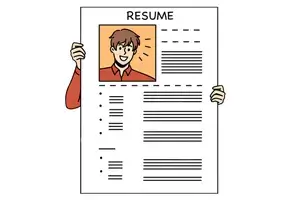 Ensuring Perfection Before You Apply
Ensuring Perfection Before You Apply









